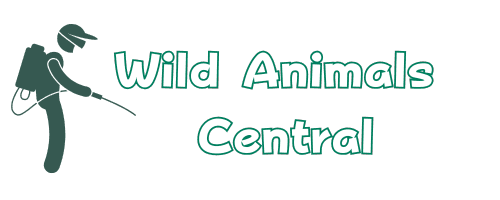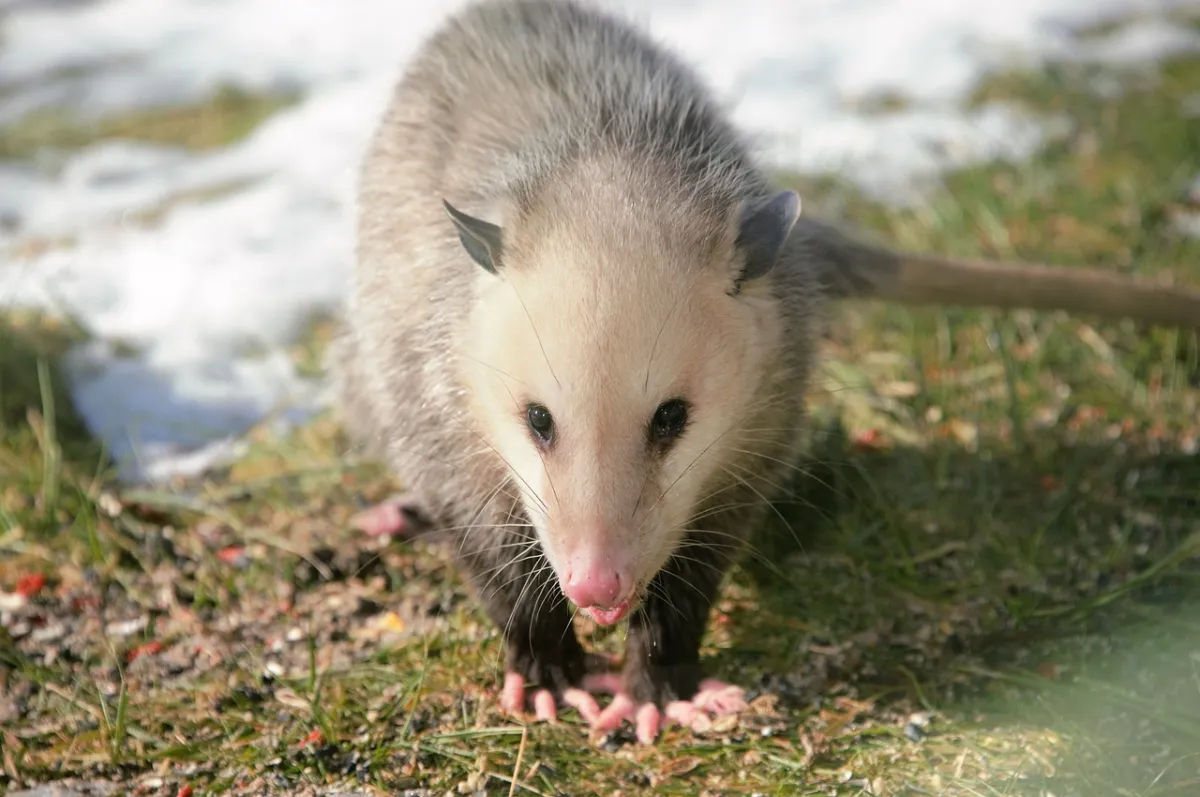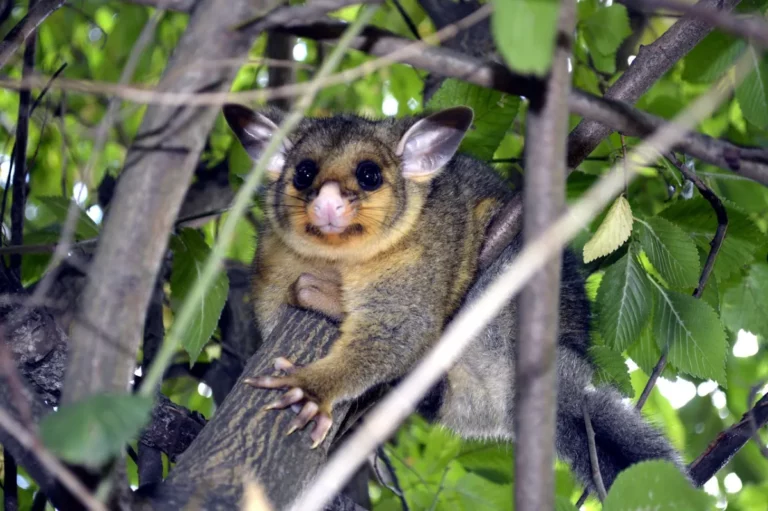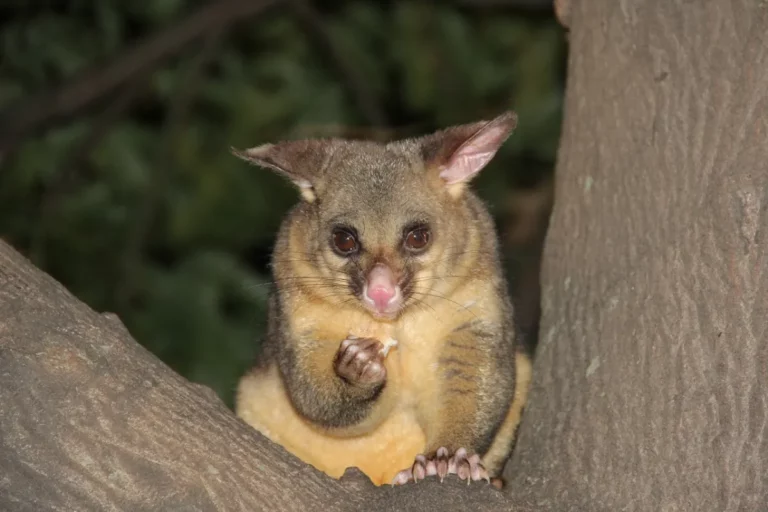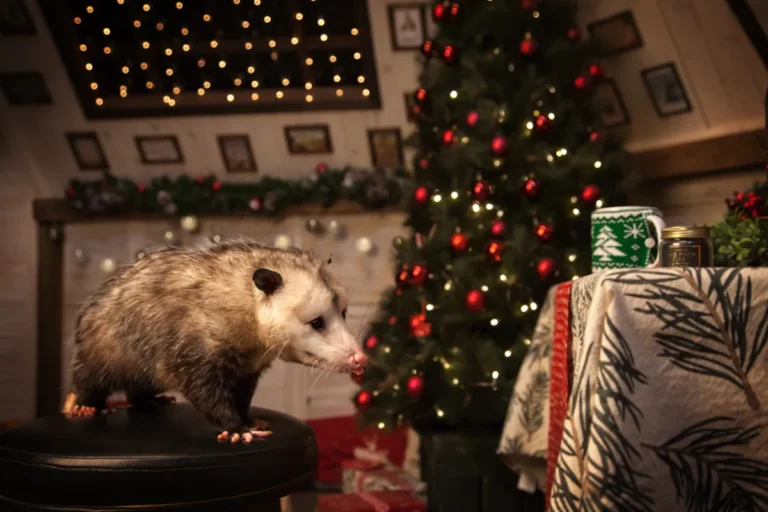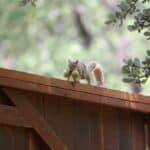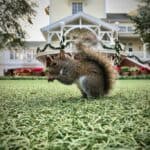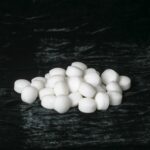These marsupials are known for being pests and nuisances. Still, they can be beneficial to your garden and the environment. Understanding the behavior and role of possums in the ecosystem can help determine whether having them in your backyard is good or bad.
Possums, specifically the Virginia opossum, are opportunistic omnivores and marsupials that feed on various foods, including insects, rodents, and ticks, making them essential for maintaining a healthy wildlife habitat.
They are natural pest controllers that can help reduce the spread of tick-borne diseases and keep your backyard free of unwanted critters. They also resist snake venom, which can help control snake populations.
However, possums can also eat commonly gardened flowers and fruits, which may concern some homeowners.
It’s important to weigh both the benefits and potential concerns of having possums in your backyard to make an informed decision about how to interact with these unique creatures.
Benefits of Possums
You might not realize it, but having these nocturnal creatures in your yard is like having tiny superheroes protecting your garden and keeping it free of pests.
Their habitat is essential for survival, and people can participate in conservation efforts by supporting organizations like NWF.
Possums are essential to the ecosystem and can provide numerous benefits for sustainable gardening and urban wildlife management.
Here are three reasons why possums are allies in your backyard:
1. Pest Control: Possums are opportunistic omnivores who eat anything from insects to small rodents. Their diet includes slugs, snails, beetles, and other pests that can damage your garden. Having possums around can help control pest populations without the need for harmful pesticides.
2. Tick Prevention: Possums are also known for controlling tick populations. They can consume over 5,000 ticks in a single season, reducing the risk of tick-borne illnesses such as Lyme disease.
3. Waste Management: Possums are scavengers and will clean up any dead animals in your yard, reducing the risk of disease transmission. They also have a unique ability to eat fallen or rotting vegetation, helping to keep your yard clean and healthy.
Natural Pest Control
If you’re looking for an eco-friendly way to control pests in your garden, consider using natural methods such as companion planting, crop rotation, and introducing predator insects.
Another conservation method you may not have considered is using opossums as natural pest control.
These marsupials eat pests such as insects, slugs, rats, and mice, which can damage your garden. According to the National Wildlife Federation (NWF), opossums benefit the environment and can help reduce the need for harmful pesticides.
Opossums also help prevent the spread of Lyme disease by eating ticks, eliminating over 5,000 ticks from the environment each year.
However, it’s important to note that opossums shouldn’t be trapped or killed if they’re found in your yard. Instead, consider the humane relocation of opossums to encourage their habitats in areas away from your garden. This is recommended by the National Wildlife Federation.
Opossums are not aggressive and often misunderstood, making them valuable to your garden’s ecosystem. Encouraging opossum habitats can create a natural balance in your garden that benefits your plants and wildlife.
Resistant to Snake Venom
Despite their bad reputation, opossums resist snake venom, making them valuable predators that can help control snake populations in the ecosystem. This makes them important to the national wildlife and the federation.
Opossums have a unique protein called Lethal Toxin-Neutralizing Factor (LTNF), which allows them to neutralize the venom of various snakes, including the copperhead and rattlesnake.
This natural resistance is due to their immune system, which has evolved to protect them from environmental toxins.
Understanding this immunity is crucial for researchers studying snake bites and the development of antivenoms.
Opossums are not only immune to snake venom, but they are also resistant to other toxins, such as bee and scorpion stings and botulism.
This resistance makes them a valuable asset in the ecosystem, as they help control the population of venomous snakes while also serving as a natural defense against other toxins.
In essence, opossums are an essential part of the ecosystem, and their natural resistance to snake venom is just one of the many ways they contribute to the balance of nature.
Impact on the Environment
Did you know that opossums play a crucial role in maintaining the balance of our wildlife and environment?
As scavengers, wildlife help to clean up dead animal carcasses, reducing the spread of disease. They also consume various foods, including fallen or rotting vegetation and can help control tick populations, eliminating over 5,000 ticks annually.
Additionally, opossums play an important role in the ecosystem by preying on wildlife such as mice, rats, and snakes, making them essential predators.
Despite their ecological significance, opossums are often misunderstood and viewed as pests. Fortunately, preservation methods and conservation efforts are being implemented to protect these unique creatures.
Preservation of Biodiversity
Preserving wildlife biodiversity is essential, and understanding opossums’ vital role in the ecosystem is crucial to achieving this goal.
Opossums are an essential part of the food chain, consuming insects, rodents, and snakes. By controlling the populations of these creatures, opossums help maintain the ecosystem’s delicate balance.
Additionally, opossums are scavengers, cleaning up dead animal carcasses and helping prevent disease spread. In this way, they contribute to the overall health of the environment.
Wildlife conservation and habitat protection are critical to maintaining biodiversity. Opossums, like many other animals, rely on specific habitats to survive. By protecting these habitats, we can ensure the continued existence of opossums and other species.
Furthermore, preserving the opossum population is essential to maintaining the ecosystem balance.
Seed Dispersal
You may not realize it, but opossums are crucial in seed dispersal. They act as nature’s gardeners by spreading seeds throughout their habitat as they forage for food.
As they move through the forest, opossums inadvertently pick up seeds on their fur and feet, contributing to wildlife dispersal and transporting them to new areas where they can grow and thrive.
This process helps maintain the ecosystem’s biodiversity and ensures plants have a better chance of survival.
Seed dispersal is essential for plant propagation and seed distribution. Without seed dispersal agents like opossums, many plant species would struggle to spread their seeds to new areas.
Opossums are particularly important for seed dispersal because they cover large areas searching for food, making them effective at transporting seeds over long distances.
Potential Concerns or Risks
If you’re not careful, allowing opossums to inhabit your property could lead to potential damage and risks to your plants, pets, and health.
Opossums are known to eat commonly gardened flowers and fruits, and their waste can damage the roots of greenery. Additionally, opossums can transmit equine protozoal myeloencephalitis to horses through contaminated grass, hay, and grain.
They can also have fleas and drop flea larvae and eggs in yards and gardens, which could cause an infestation in your home. It’s essential to take preventative measures to avoid an opossum infestation, such as possum-proofing your yard and eliminating reasons for them being in it.
If you find opossums on your property, handling their removal humanely is essential. Contact a pest control company that specializes in the humane removal of wildlife.
Property Damage
Property damage caused by opossums can be significant, with their waste damaging the roots of greenery and their love for commonly gardened fruits and flowers, leading to destroyed gardens.
While opossums can be beneficial in controlling tick populations and cleaning up dead animal carcasses, their presence can also lead to contaminated grass, hay, and grain, potentially affecting horses’ health with equine protozoal myeloencephalitis.
Preventing damage caused by opossums can be achieved through humane solutions, such as using Critter-Repellent to keep them out of your yard and protecting your garden with fences or netting.
Humane solutions are essential when dealing with opossums, as they are often misunderstood and not aggressive toward humans.
However, their opportunistic behavior and love for pet food and garbage can lead to them sheltering in homes, garages, or outbuildings.
It’s crucial to eliminate reasons for opossums in your yard, such as removing pet food and securing trash cans, to prevent them from causing property damage and potentially transmitting diseases to your pets or livestock.
Disease Transmission
While opossums resist many diseases, they can still carry and transmit diseases to other animals and humans.
Avoiding contact with opossums and their waste is the best way to prevent transmission. Keep pets and livestock away from opossums and their droppings, which can contain harmful bacteria and parasites.
In addition, opossums can carry ticks and fleas, spreading diseases like Lyme disease and Rocky Mountain spotted fever.
To prevent transmission, consider using tick and flea preventatives on pets and keeping your yard well-maintained to reduce tick and flea populations.
| Disease | Risk | Prevention |
|---|---|---|
| Rabies | Moderate risk can be transmitted through contaminated hay and grain | Avoid contact with opossums and their waste |
| Equine Protozoal Myeloencephalitis | Moderate risk, opossums can help control tick populations but can also carry ticks. | Keep opossums away from horse feed and water sources |
| Lyme Disease | Use flea preventative on pets and keep the yard well-maintained | Use tick preventative on pets and keep yard well-maintained |
| Fleas | Moderate risk, opossums can carry and drop flea larvae and eggs | In moderate risk, opossums can help control tick populations and carry ticks. |
Frequently Asked Questions
Are opossums dangerous to humans or pets?
Opossums are generally not dangerous to humans or pets. As scavengers, they may eat pet food left outdoors but are unlikely to attack. Their behavior around food is opportunistic, but they are important cultural symbols in many societies.
Can opossums transmit diseases to humans or pets?
Opossums are unlikely to transmit diseases to humans or pets but can carry zoonotic diseases. Take precautions when handling or being around them to ensure pet safety.
Do opossums hibernate in the winter?
Opossums don’t hibernate in the winter but can experience lethargy, slowing their metabolism to conserve energy. Their food habits vary by region, and they prefer habitats near water sources with dense vegetation and cover.
How do opossums interact with other wildlife in the ecosystem?
Opossums have a diverse diet, including insects, rodents, and snakes. They are scavengers that help clean up dead animals and can play a role in predator-prey relationships. They coexist with other wildlife but may compete for resources.
Can opossums cause damage to homes or property?
To prevent opossum damage to your home or property, try opossum deterrent methods such as securing garbage and closing off potential entry points. If necessary, consider humane opossum relocation options.
Conclusion
So, you’ve got possums in your backyard, wondering if they’re good or bad. Well, let me tell you, these creatures are absolute superheroes regarding natural pest control.
They eat all sorts of pesky insects and rodents and even help reduce the spread of tick-borne diseases. They’re immune to snake venom and the ultimate pest control team.
But wait, there’s more! Possums also play a crucial role in the environment by helping with seed dispersal. They eat fruits and berries and then spread the seeds through their feces, helping to grow new plants and trees.
However, it’s important to note that possums can cause potential concerns or risks. They may eat commonly gardened flowers and fruits and transmit diseases to pets and livestock.
But overall, the benefits of having possums in your backyard far outweigh the potential risks. So don’t be afraid to embrace these misunderstood creatures and let them do their superhero work in your backyard.
